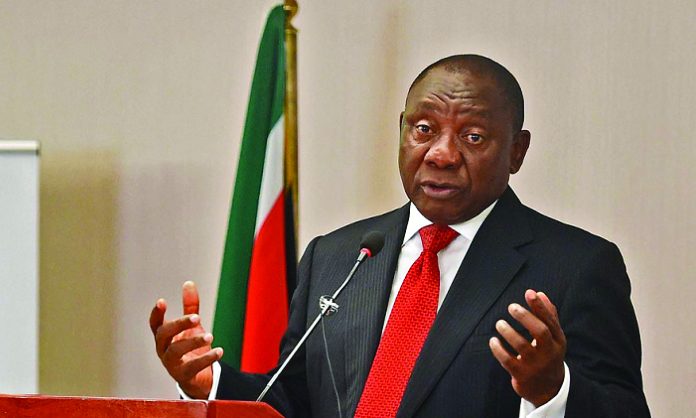The expected joining of Saudi Arabia, Argentina, Ethiopia, Iran, Saudi Arabia, Egypt and the United Arab Emirates to Brics will have six of the world’s nine biggest oil producers as members come January 2024.
It is not clear whether there would be any cooperation in terms of regulating oil prices from these economic heavyweights, however, having China, Saudi Arabia, Russia, Iran, United Arab Emirates (UAE) and India cements the idea that Brics was also all out to direct the energy order for the globe.
At the moment, the Brics economic bloc comprises five countries: Brazil, Russia, India, China and South Africa.
South Africa’s president, Cyril Ramaphosa, spoke on the group’s expansion plan during a news conference at the Brics summit which ended in Johannesburg yesterday.
The expected new members, three of which are oil-producing countries – Saudi Arabia, Iran, and the UAE – are key members of the Organisation of Petroleum Exporting Countries (Opec).
“This membership expansion is historic,” said Chinese president Xi Jinping.
“The expansion is also a new starting point for Brics cooperation. It will bring new vigour to the Brics cooperation mechanism and further strengthen the force for world peace and development.”
Ethiopian prime minister Abiy Ahmed hailed what he called “a great moment” for his country.
“Ethiopia stands ready to cooperate with all for an inclusive and prosperous global order,” Ahmed said on Twitter.
The expansion of the group is part of its plan to build dominance and reshape global governance into a “multipolar” world order that puts voices of the Global South at the centre of the world agenda.
The inclusion of Saudi Arabia, the UAE, Iran and Egypt marks the first Middle East and North Africa (Mena) representation in the group, and the inclusion of Argentina was championed by member Brazil.
Expansion was pushed heavily by Russia and China, analysts said, as they are facing pushback from Western nations in the form of sanctions.
More than 40 countries had expressed interest in joining Brics, and 23 formally applied to join the club, which already represented a quarter of the global economy and 40% of the world’s population.
Brazilian president Luiz Inácio Lula da Silva said with the admission of six new members, the bloc would represent 46% of the world’s population and an even greater share of its economic output.
Speaking at the sidelines of the summit, South African diplomat Anil Sookla said the Brics currency is being discussed, “but let me correct: It’s not about a Brics currency. It is too early to talk about a Brics currency,” he said.
“What we are talking about is creating more financial inclusion in terms of global financial transactions, global financial trade and how we conduct our payment,” said Sookla.
The diplomat indicated that it was rather important for the Global South to be able to borrow and make payment settlements in their own currencies, instead of being dependent on the dollar and the euro and losing money to currency conversion.
African central banks have already begun implementing a pan-African payment system to facilitate trade using local currencies.
African nations expect it to save them billions of US dollars annually in currency conversion costs.
Addressing the Brics business forum through a video link, Russian president Vladimir Putin said the de-dollarisation process among the bloc was irreversible, and the share of the US dollar in trade was decreasing.
“The objective, irreversible process of de-dollarisation of our economic ties is gaining momentum. Efforts are being made to develop effective mechanisms for mutual settlements and monetary and financial control. As a result, the share of the dollar in export-import transactions within Brics is declining: last year it amounted to only 28,7%,” Putin said.
Dilma Rousseff, president of the Brics’ New Development Bank (NDB) said plans were underway to start lending in the South African and Brazilian currencies in order to reduce global dependence on the US dollar, the Financial Times reported.
With the implementation of lending in the South African rand and Brazilian real and with a reduction in reliance on the US dollar, the NDB is planning to promote the development of a more multipolar global financial system, the newspaper said, citing the bank’s president.
Meanwhile, African countries want China to shift its focus from building infrastructure on the continent to local industrialisation, China’s top Africa diplomat said at a briefing on the sidelines of the summit.
– Additional report, Cape Times, Aljazeera
Stay informed with The Namibian – your source for credible journalism. Get in-depth reporting and opinions for
only N$85 a month. Invest in journalism, invest in democracy –
Subscribe Now!






